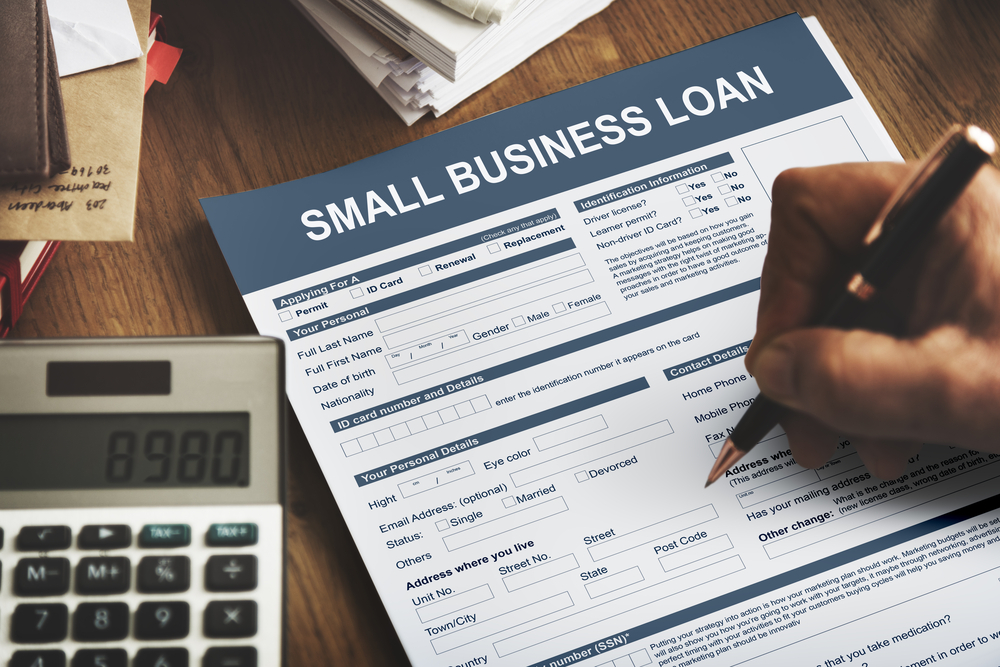To understand the requirements for obtaining a business loan in New Zealand, you need to focus on different aspects. Eligibility for business loans and types of business loans available in New Zealand are the starting points. Upon knowing the loan types, you have to collect the necessary documents and consider collateral and guarantees for the loans. Finally, you will have to follow the proper application process to apply and get approval. Overall, comprehending these aspects can help you understand business loan requirements in New Zealand.
Eligibility for Business Loans
Do you need to know the criteria to be eligible for a business loan? Here’s 6 points lenders look at:
- Your credit score & history
- Business revenue & cash flow
- Age of business
- Industry & market position
- Collateral or assets in your name
- Purpose & feasibility of requested loan amount
Be sure to present a well-prepared business plan with precise financial projections. Note that some lenders may have extra criteria for eligibility based on their internal policies.
In June 2021, NZBN stated there were more than 545,000 registered businesses in NZ. Having a business is like being a parent – the longer it exists, the pricier it gets. But at least you can apply for a loan.

Business Age and Ownership
In New Zealand, Ownership and Age requirements are key points when applying for a business loan. It is essential to grasp the criteria banks use to decide on lending.
Sole traders/Partnerships need a minimum of 6 months in operation. Companies often require 1-2 years. The minimum age is usually 18. Banks may even ask for the owner to have a minimum shareholding in the company.
When applying for business loans in New Zealand, Ownership and Age elements are important. Certain companies must have been running for a while before being eligible.
Late payments or outstanding debt can adversely affect the loan application process. Banks want to make sure their investment is safe and secure.
By understanding what banks seek in terms of Ownership and Age requirements, entrepreneurs can be well-prepared when searching for loans. Meeting these criteria boosts the chance of approval and helps guarantee smooth operations ahead.
Credit Score and Financial History
To get a business loan in New Zealand, you must meet certain requirements. These include having a good credit score and financial history. Lenders analyze your credit report and income statements to decide if you are creditworthy.

A good credit score shows lenders that you can pay back the loan on time. A good financial history shows consistent growth and successful debt management. But if your credit score is poor, you may not get the loan or will have to pay higher interest rates with more security. So, maintain good credit health.
In addition, it’s important to make timely payments on existing loans. This shows your financial responsibility and reliability. To improve eligibility, reduce outstanding debts, present accurate financial statements and explain past payment defaults or shortfalls.
To get approval for a business loan, maintain good credit health, honor previous debts, and have all documentation ready.
Business Revenue and Profitability
Financial stability is key for successful loan repayments. Assessing firms analyze Revenue & Profitability trends of businesses to decide if they can lend a large amount.
See the table below for details necessary to qualify for a loan. It’ll help you understand acceptable fluctuations. Consistent returns on investment always work in favor of lenders.
To prove business capability to generate revenues, documentation should be ready to show cash flow statements and P&L accounts for three years. This shows profit made & how resources are allocated.
Track new market trends, maintain good supplier partnerships & target loyal customers who can vouch for your reputation. The more reputable you are, the better chance of loan approval at competitive rates. NZ has a loan type for every debt & desperation level.

Types of Business Loans in New Zealand
Check Out New Zealand’s Loan Options!
There are various loans available to help support businesses in New Zealand. Check out the table below for more details about each loan option, such as repayment terms and interest rates.
| Loan Type | Repayment Term | Interest Rate |
| Term loans | 1-5 years | 5-20% |
| Invoice factoring loans | Varying periods depending on the customer’s payment period for invoices. | Average of 3% |
| Merchant cash advance loans | 17-23% (factor rate) | |
Plus, NZ businesses can take advantage of unsecured business loans, line-of-credit loans, equipment financing, and commercial property financing among many others. It’s important to pick the right loan based on your goals and financial situation.
For instance, smaller companies may prefer short-term funding options such as merchant cash advance or invoice factoring loans because they offer quicker access to funds than term loans.
Term Loans
Term Loans are a type of financing that involves borrowing money with interest over a fixed period. The approval process for Term Loans in New Zealand differs depending on the lender and amount being borrowed.
To get a Term Loan, key requirements include:
| Requirement | Description |
| Credit Score | A good credit score is usually necessary. |
| Business Plan | Outlining how the money will be used and potential revenue projections. |
| Cash Flow | As an indicator of the borrower’s ability to repay. |
| Collateral | Property, equipment or any other assets as security. |
Also, lenders may ask for more paperwork such as financial statements or tax returns.
Each lender has their own rules and processes. It’s best to compare multiple lenders before applying.
Term Loans have been around since ancient times. Today, they are essential for business growth. Credit is like a light switch; flip it on and watch your business shine, but don’t forget to pay the electric bill.

Line of Credit
A line of credit is a great way for businesses to get access to funds when needed. It’s like a credit card, where you can withdraw any amount within your approved limit, pay interest only on what you use, and make repayments on your own schedule. Perfect for short-term cash flow needs and unexpected expenses or investment in new projects.
Having a solid credit history and good financial standing are must-haves to qualify for a line of credit. And lenders will also require a business plan, financial statements, tax returns, and other relevant documents to accurately assess borrowers’ risk levels.
Plus, some lenders may ask for collateral or personal guarantees from the business owner before approving the application. It’s very important to understand the terms and conditions before agreeing.
To sum up, a line of credit can provide access to much-needed funds while giving you flexibility in payment options. But make sure to read the terms and requirements carefully before applying.
Equipment Financing
Are you in New Zealand and seeking funding for equipment? There are various solutions available! Financing of equipment is one option – this involves borrowing money to purchase or lease the equipment needed. Here are some details on the loan providers and interest rates:
| Loan Provider | Interest Rate | Maximum Loan Amount |
| ANZ Bank | 11.99% p.a. | $1,000,000 |
| Westpac | 10.99% p.a. | $250,000 |
Apart from banks and financial institutions, there are also leasing companies that provide different leases, such as finance and operating leases. Financing a lease means borrowing funds to pay periodic payments for the asset over a set period.
Jim from Hamilton took advantage of a local financier’s cost-effective and efficient financing program. He said, ‘Equipment is essential to my business operations, but I couldn’t afford to buy them outright due to cash flow constraints. The low-interest rates and flexible repayment terms offered by my financier helped me acquire all essential equipment.’
Invoice Financing
Invoice financing is a great way for businesses to get financing. It uses unpaid invoices as collateral for a loan. The amount can be from $10,000 to $500,000. The repayment term is up to 90 days or when the invoice is paid – whichever comes first. Interest rates are 2-5% a month, based on the invoices and creditworthiness of business owners.
Not all businesses are eligible, as they need to have invoices from creditworthy customers that can be easily verified. According to a study conducted by Xero in 2018, small businesses in New Zealand managed to pay their invoices faster – over half paid within 20 days.
Getting a loan from the SBA is difficult. It requires lots of paperwork, but fewer curse words.
Small Business Administration Loans
Small businesses in New Zealand have the option of securing financing through Administration Loans. These loans are designed specifically for small and medium-sized businesses. Key features include flexible repayment terms, low interest rates, no collateral requirements, and a range of loan sizes.
Administration Loans also offer guidance and advice throughout the application process. However, it’s important to consider your needs and goals before deciding whether or not to apply.
For example, Sarah Jones acquired a $50k loan from the Small Business Loan Scheme. She used this money to create content-driven placements. With help from Administration Loan officials and mentoring support from successful entrepreneurs, she was able to reach out to organizations during the COVID-19 Pandemic.
Remember, applying for a loan means paperwork. Make sure you’re ready to show your documentation skills.

Documentation Required for Business Loan Application
To secure a business loan in New Zealand, you’ll need to provide certain documents. These help the lender determine your creditworthiness and ability to repay.
These include:
- A business plan.
- Financial statements (profit/loss, balance sheet, cash flow).
- Tax returns for the business and owners spanning two years.
- Proof of ID.
- Collateral info.
- Budget/cash flow projections.
Ensure all docs are accurate, up-to-date and complete. Discrepancies or missing info can hurt your chances of approval.
For an even better shot, you can submit extra docs. Think resumes, supplier/customer references, and company licenses.
Don’t jeopardize your business success! To up your odds, make sure all docs are submitted accurately and on-time. Before you start making financial projections, make sure your business plan isn’t just howling at the moon!
Business Plan and Financial Projections
Grasping the demands and conditions of getting a business loan in New Zealand is essential for any organization’s success. A solid groundwork for the venture, composed of a Business Plan and Financial Projections, is essential.
Here’s the facts on these important criteria:
| Business Plan | Financial Projections |
|---|---|
| A detailed outline of the business model | Predicted financial performance based on past trends and industry analysis |
| Description of products or services offered | Detailed statement of cash inflow and outflow projections for at least three years |
| Market research and analysis report with benchmarking data to support market projections, target segments, etc. | Breakdown of financial statements (balance sheets, income statements) for each fiscal year included in the projection period. |
It’s essential to note that these are judged separately by lenders. A structured Business Plan shows that appropriate planning has gone into starting and maintaining an enterprise. Financial Projections show possible finance or growth issues.
These directions assist entrepreneurs in forming convincing documents to highlight their business objectives and liquidity.
A mistake that applicants often make is rushing through the documentation process without considering the details, leading to rejections.
Tax Returns and Financial Statements
To secure a business loan in New Zealand, a financial institution requires tax returns and financial statements as proof of financial performance. These documents demonstrate that taxes have been paid and the enterprise is financially responsible.
Details for submitting tax returns and financial statements for a business loan include:
| Required Document | Description |
| Tax Returns | These show the enterprise has paid taxes as due. |
| Financial Statements | These provide an overview of the company’s financial performance over a period. |
Accuracy and timeliness of these documents are key. Submitting false or misleading information might result in legal penalties such as fines or jail time. So, it is important to be honest and open when submitting information to a financial institution.
Personal Identification and Business Registration Documents
To apply for a loan in New Zealand, certain documents are needed. These must prove your identity and verify you own your business. You must also show it’s legally registered.
Here is a list of what’s needed:
| Document Type | Requirements |
|---|---|
| Personal Identification | Passport or driver’s license |
| Business Registration | Certificate of Incorporation, Partnership Deed, or Trust Deed. |
Lenders may also need other documents. These depend on their policies. Keep copies of any changes when registering your business.
A recent survey from the Reserve Bank of New Zealand found banks lent three-quarters of new money in August 2021.
Put your assets where your loan application is!
Collateral and Guarantees for Business Loans
When getting a business loan, lenders often need collateral or guarantees from the borrower as security. Here’s the common collateral and guarantees New Zealand lenders require for business loans:
| Collateral/Guarantee | Definition |
| Property | A physical asset used as security |
| Business assets | For example, inventory or equipment |
| Personal guarantee | A pledge made by an individual to repay the loan |
| Third-party guarantee | A pledge made by someone else to repay the loan |
Each lender may have different requirements. Check with them before applying.
You could consider other ways of financing, like crowdfunding or angel investors, which might not need collateral or guarantees.
Business.govt.nz suggests having a good business plan and financial projections when asking for a loan. So if you want to secure a New Zealand business loan, make sure you have your prized possessions ready!
Types of Collateral Accepted
Collateral Requirements for Business Loans in New Zealand
When getting a business loan, collateral is important. It’s security for the lender if the loan can’t be repaid. Here are some accepted types of collateral for New Zealand business loans:
| Collateral Type | Description and Examples |
| Real Estate | Properties, land, and buildings owned by the borrower. |
| Vehicles and Equipment | Cars, trucks, machinery, and stuff of good value. |
| Invoices and Receivables | Unpaid customer invoices or receivables collectable by the lender. |
These types of collateral are typical, but lenders may accept others, depending on the loan and business. Consult a financial advisor or lender to know their specific requirements.
Personal Guarantees
Personal guarantee is a concept which often arises when securing a business loan. This means an individual takes responsibility for repaying the loan if the borrower fails to do so. Here are some key points to understand:
| – Lenders often require shareholders or directors to provide personal guarantees as security. |
| – Collateral matching the amount of the guarantee must be provided by the personal guarantor. |
| – Signing the agreement makes the guarantor legally and financially liable. |
| – These guarantees may be limited or unlimited, depending on the circumstances. |
| – If the borrower doesn’t repay, a lender may take legal action against the guarantor. |
| – Personal guarantees reduce the risks lenders face when offering loans. |
It’s important to protect your finances, even if you’re not directly responsible for repayment. Get advice from professionals, like accountants or lawyers, to find out your options.
To make smart decisions, it’s essential to understand what’s involved in a business loan. Knowing how to manage complex lending requirements and minimize risk is crucial for any entrepreneur looking to fund their venture.
Third-Party Guarantees
For a biz loan in New Zealand, lenders may need third-party guarantees for financial security. These are provided by individuals or organisations who promise to pay back if the borrower can’t.
Let’s look at the table to understand these requirements:
| Requirements | Details |
|---|---|
| Guarantor relationship | Must be close, such as family, friend, business partner/shareholder. |
| Age limitations | Must be 18+, generally under 75. Some lenders may differ. |
| Financial stability | Must have stable income source & significant assets/savings. |
| Credit rating | Good credit history/score, showing ability to manage finances/pay debts on time. |
| Legal consequences | Will be responsible to repay full amount if borrower defaults & may face legal action. |
Not all lenders need third-party guarantees & some may have additional requirements.
Before agreeing to provide guarantees, potential guarantors must know their responsibilities. They should get expert advice & have the means to cover loan payments if needed.
Application Process for Business Loans in New Zealand
New Zealand business loans require certain criteria. Here’s how to start the process:
| Step | Description |
|---|---|
| 1 | Assess your biz needs and ability to repay. |
| 2 | Gather financial statements, tax returns, and business plans. |
| 3 | Choose the loan type that fits your biz, like secured or unsecured. |
| 4 | Find a lender with terms and conditions you can live with. |
| 5 | Submit application with all needed docs. |
Some lenders may have special eligibility or rates for certain businesses. Make sure to shop around before making a decision.
Did you know? NZ businesses had NZD 123 billion in outstanding loans according to the Reserve Bank of New Zealand in June 2021. Ready to share your life story? Loan applications take a lot of info!
Preparing the Loan Application
Secure a Business Loan in New Zealand with these 5 steps! Prepare a stand-out application by:
- Creating a business plan that details objectives, strategies, research, and projections.
- Organizing financial statements, such as income statements, balance sheets, tax returns, and bank statements.
- Checking your credit history for accuracy and updating it if needed.
- Gathering legal documents, supplier agreements, insurance policies, etc.
- Drafting a loan proposal that summarizes all info in an aligned, compelling way.
Make your business shine! Highlight its competitive edge and growth potential. Avoid repetition and make sure all info is current.
Ready to apply? Don’t miss the chance – start Preparing the Loan Application now! Get ready to submit the application and required documents.
Submitting the Application and Required Documents
Submitting the application and documents for a business loan is a major step. Here’s what to do:
- 1. Fill out the form accurately. Make sure all fields are honest and complete.
- 2. Collect and provide the lender with all the needed documents, like financials, income proof, and identification.
- 3. Submit the filled-out form and documents.
- 4. Wait for the lender’s confirmation.
Check your documents twice before sending them. They must be accounted for, complete, and in order.
Different lenders may have different requirements for NZ business loans, depending on credit rating, revenue history, etc. Research these requirements well before starting the application process.
My friend’s loan was declined because of incomplete docs when they submitted. It caused a major cash flow issue. This shows how important it is to meet all criteria when applying for a business loan.
Waiting for the Loan Approval Decision
After submitting a loan application, the approval process can take time. Patience is necessary while awaiting the lender’s decision. However, there’s no guarantee of approval even after waiting.
Stay in touch with the lender while waiting. They may need additional info or documents. Be prepared to provide any clarifications.
Also, consider other ways to fund your business during this wait. Think about alternative sources of financing, or adjust business plans in case of rejection.
Understand loan agreement terms and conditions before signing. Consult an expert or legal advisor if needed.
By being patient, keeping up communication, and considering alternative options, business owners have better chances of achieving their financial goals.
Accepting and Repaying the Loan
When it comes to getting a business loan in New Zealand, accepting and repaying the funds is key. So, how do you go about this? Here’s a guide on “.4 Acknowledging and Returning the Loan”.
Review the loan’s terms, such as interest rates and repayment schedules. If you agree, sign the agreement and send it back. Make a plan for using the funds. Track expenses and make regular payments. Check if flexible repayment options or early repayment discounts are offered.
Late or missed payments can damage your credit score and relationship with the lender. So, if you struggle to make repayments, tell your lender right away.
Do your research on lenders; be clear on your needs and goals; and practice responsible borrowing.
Historically, funding dreams was difficult. But, now, there are banks & money lending institutions, such as Kabbage, KredX, etc., relying on machine learning algorithms. These provide easy funding with bearable interest rates, without collateral, by assessing credit data, bank statements, and alternate financial info.
Before you get a business loan in New Zealand, understand the requirements. Otherwise, you may end up in debt.
Conclusion: Understanding Business Loan Requirements in New Zealand
Understanding New Zealand’s Business Loan Requirements is essential for entrepreneurs and businesses. Identifying and following the eligibility criteria, loan terms, and types is key. Industry regulators and financial institutions set the compliance standards each year. This can be time consuming but it’s beneficial for businesses to make informed decisions.
A business plan is a must. It should note market gaps, strengths, challenges, and profit projections. Financial records are also required to show repayment abilities. Business Loan requirements include security collaterals, personal guarantees from directors/partners, and legal advice for negotiations.
In NZ, many institutions offer government-backed loans at affordable interest rates to help SMEs. If banks slow down loan approvals, non-traditional financing such as crowdfunding and invoice finance can be used.
Having an understanding of the loan process is important. Otherwise, applications may get rejected due to incompleteness or failing to meet criteria. It’s best to research the financing options thoroughly in order to submit a strong application.
Business Loan requirements can change with economic conditions. It’s important to stay updated.

